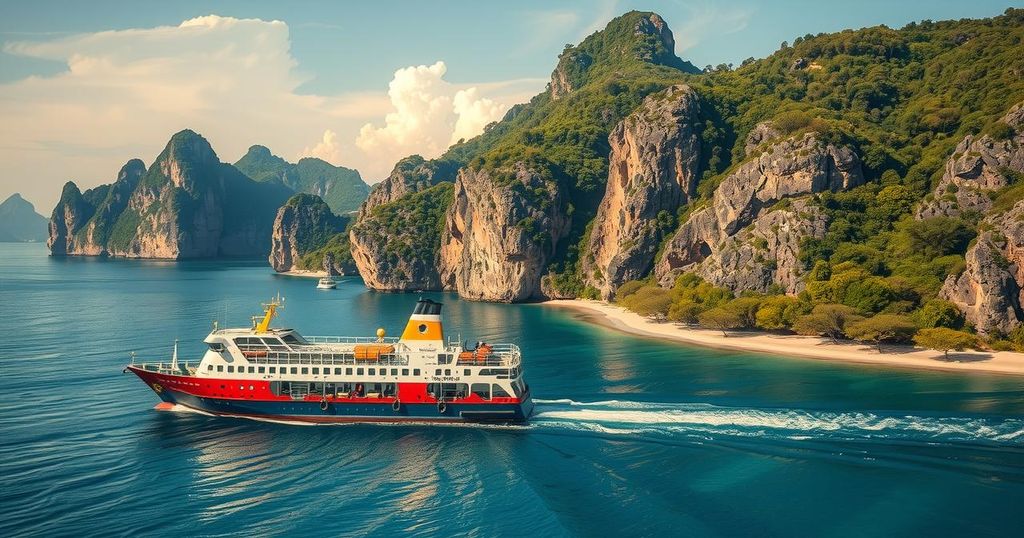The Great Passage: A Cruise Retracing the Slave Trade Route from Angola to Brazil

The Great Passage cruise is set to retrace the transatlantic journey of enslaved individuals from Angola to Brazil, promoting education and accountability regarding the legacy of the slave trade. Helena Monteiro da Costa, whose father was enslaved, looks forward to participating in this historic journey. Brazil received approximately five million enslaved Africans, primarily from Angola, between the 16th and 19th centuries, highlighting the need for awareness about this dark past.
Helena Monteiro da Costa is eagerly anticipating a historic cruise set for next year, which will retrace the harrowing transatlantic journey taken by her father, who was enslaved and forcibly transported from Angola to Brazil in the 19th century. The cruise, titled The Great Passage, aims to reverse the journey millions endured and is designed to educate participants about the realities of the transatlantic slave trade. Costa reflects on her father’s experience, stating, “My father was enslaved and he obeyed … everything they (the enslavers) told him to do he did.”
Historically, Brazil received around five million enslaved Africans from the 16th to the 19th century, surpassing any other nation in this dark chapter of human history. Most enslaved individuals were forcibly taken from Angola aboard Portuguese ships under deplorable conditions. The Great Passage cruise serves as both an acknowledgment of this grim heritage and an opportunity to confront and educate on the impacts of slavery that resonate to this day.
The proposed cruise along the historical slave trade route is significant as it reestablishes the connection between Brazil and Angola, nations entwined by the tragic legacy of slavery. The journey is set against a backdrop of over five centuries of transatlantic slave traffic, which saw millions of Africans forcibly removed from their homeland. Brazil, as the destination for the largest number of enslaved people, holds a particularly poignant position in this history, making the cruise an essential educational journey about heritage and the realities of past injustices.
In summary, The Great Passage cruise is a commendable initiative aimed at educating participants about the nuances and inherent tragedies of the slave trade. By retracing the historical journey taken by enslaved Africans, the cruise seeks to foster greater awareness and acknowledgment of this somber aspect of human history. It offers a unique perspective for descendants of those affected and serves as a testament to the enduring impact of slavery in contemporary society.
Original Source: www.scmp.com








